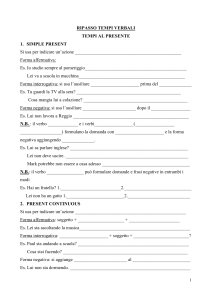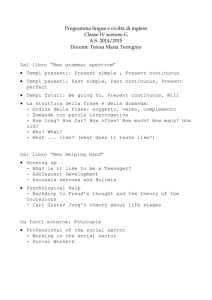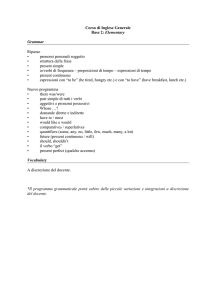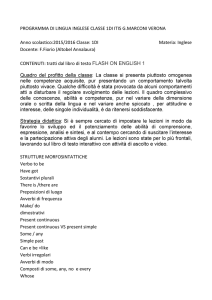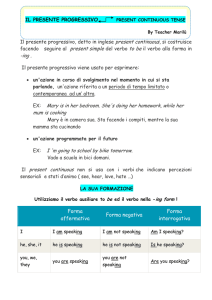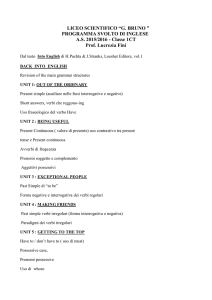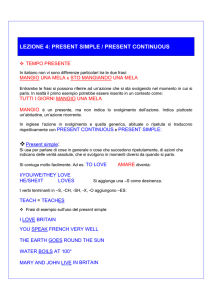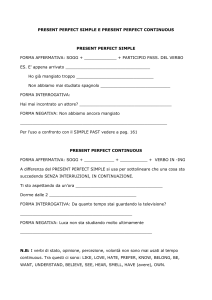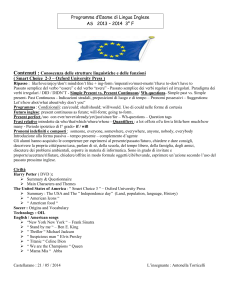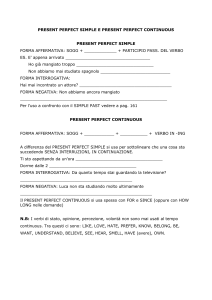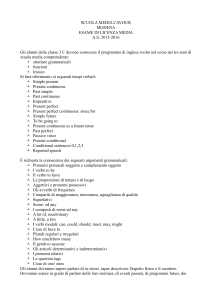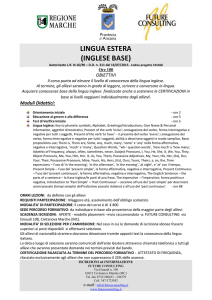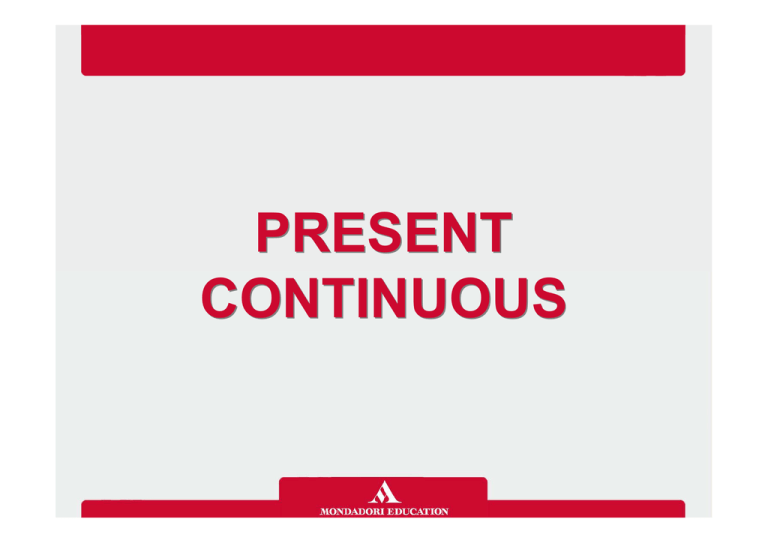
PRESENT
CONTINUOUS
Definizione
Il Present continuous si usa per parlare di un avvenimento
nel presente. L’ azione descritta dal verbo al Present
continuous si sta svolgendo nel momento in cui il soggetto
parla, oppure dura per un periodo che include anche il
presente.
____________I----I am living--I___________
past
now
future
Come si forma
AM/ARE/IS + VERBO+ -ING
AFFERMATIVA
She is speaking.
INTERROGATIVA
Are you speaking?
NEGATIVA
I am not(’m not) speaking.
INTERROGATIVA-NEGATIVA
Isn’t he speaking?
Quando si usa -1
Per parlare di azioni che accadono nel momento
in cui si parla:
They are talking.
⇩
Sta succedendo
in questo momento.
Quando si usa -2
Per indicare che un’azione dura nel tempo ma
non è permanente, con espressioni come
today, this week, this month ecc…:
My car is broken, so
I’m going to work by
bus this week.
⇩
Non per sempre.
Quando si usa -3
Per parlare di cose che stanno succedendo nel
presente, anche non necessariamente nel
momento in cui si parla:
I must go back to the office, I
am working on a new project.
⇩
In questo periodo,
non necessariamente in
questo momento.
Quando si usa -4
Il Present continuous non si usa con i verbi di stato
o di azione. Tra questi rientrano anche:
Stato mentale
to understand, to believe, to remember
Sentimenti
to want, to wish, to love, to like
Percezioni
sensoriali
to see (si usa watch), to hear (si usa listening),
to smell,
Possesso
Caratteristiche
stabili
to have (si usa con have lunch, have a
shower…), to own, to possess
to be, to seem, to look like
Altri usi
Il Present continuous si usa anche:
• Per parlare del futuro quando ci si riferisce ad
azioni programmate prossimamente o ad
appuntamenti futuri:
I’m leaving for London tomorrow.
She is coming the party on Saturday.
Per esercitarsi
Inserisci il Present continuous dei verbi tra
parentesi alla forma affermativa, interrogativa o
negativa.
I……………..my favourite programme on TV. (watch)
…………………………for someone? (you look)
This week………………….work at 07.00. (we start)
Look at this photo,…………………in the ocean. (he swim)
She……………….basketball this year. (not play)
……………………………at University or working? (he study)
I…………………………….to the theatre tomorrow. (not come)
Where..……….Mark……………..? (go)

